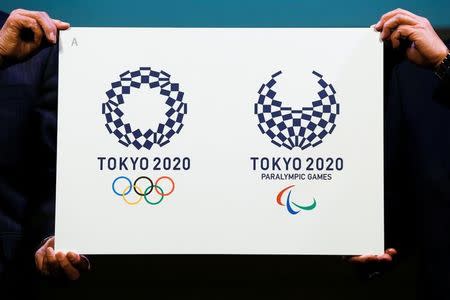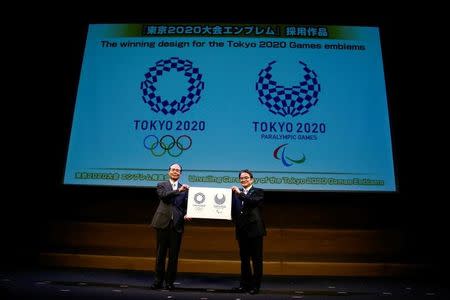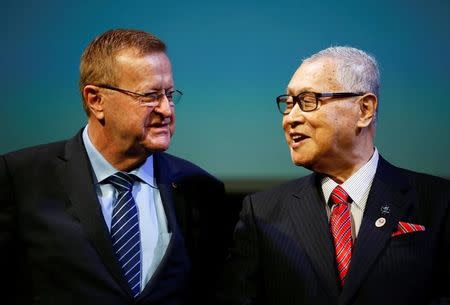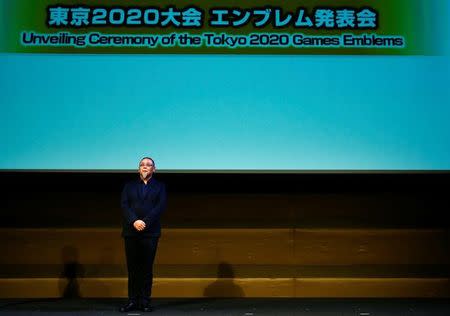Tokyo 2020 unveils new logo after plagiarism claims
By Minami Funakoshi TOKYO (Reuters) - Tokyo 2020 organisers unveiled a new Olympic logo featuring traditional Japanese designs on Monday, seven months after they were forced to scrap the original motif over accusations of plagiarism. The new logo, chosen from more than 14,000 candidates, adopts a traditional indigo-blue chequered pattern called "ichimatsu moyo" that dates back to the Edo period (1603-1868). The individually-shaped rectangles in the design represented differences in culture and nationalities and symbolised "unity in diversity", the committee that chose the emblem said. "It took me a long time to create this logo -- it's like my own child," Tokyo-based artist Asao Tokoro, who designed the winning emblem, told a packed news conference. "I can't be an athlete but I have felt a longing towards the Olympics since I was a child, and thought I can be involved through design," he added. "From today, these emblems will serve as the face of the Tokyo 2020 Olympic and Paralympic Games. I very much hope that the emblems will prove popular with people everywhere," said Ryohei Miyata, chairman of the Tokyo 2020 Emblems Selection Committee. The members of the committee emphasised the transparency of the selection process, saying the logo was selected through an open competition -- the first in Olympic history -- in an effort to overcome setbacks caused by previous missteps. A dispute over the original logo erupted soon after it was unveiled last July, when a Belgian-based designer said it was too similar to his emblem for a theatre, demanding its use be halted and filing a lawsuit in local court. The logo's designer Kenjiro Sano and Tokyo 2020 Olympics organisers denied the pattern had been copied but eventually scrapped it, saying its reputation was too damaged to be used. Japan's second hosting of the Summer Games after Tokyo held the 1964 Olympics has been hampered by a series of setbacks, including a complete overhaul of the stadium design, abandoned in response to growing public anger over soaring costs. The mishaps have tarnished Japan's reputation as a shrewd and efficient operator, a notoriety that helped Tokyo win hosting rights for the Games over Madrid and Istanbul in 2013. (Editing by John O'Brien)




